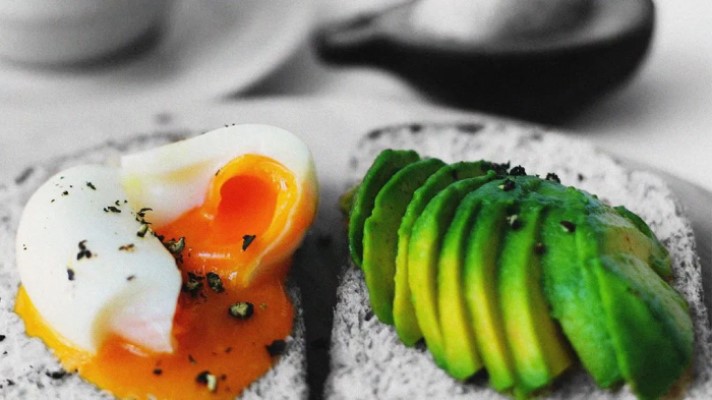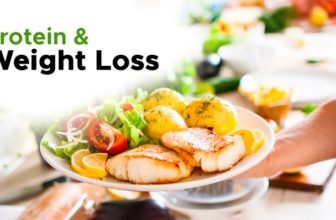
Best Foods for Weight Loss: A Guide to Healthy Eating
-
Introduction
- Eating a healthy diet is essential for weight loss
- Choosing the right foods can make a big difference in weight loss efforts
-
Protein-Rich Foods
- Protein helps to keep you feeling full and satisfied
- Good sources of protein include lean meats, fish, eggs, and beans
- Greek yogurt and cottage cheese are also good sources of protein
-
Fiber-Rich Foods
- Fiber helps to keep you feeling full and satisfied
- Good sources of fiber include fruits, vegetables, whole grains, and legumes
- Eating foods high in fiber can also help to regulate digestion
-
Healthy Fats
- Fats are an essential part of a healthy diet
- Good sources of healthy fats include avocado, nuts, seeds, and olive oil
- Healthy fats can help to keep you feeling full and satisfied
-
Low-Calorie Foods
- Eating low-calorie foods can help to reduce overall calorie intake
- Good sources of low-calorie foods include fruits, vegetables, and broth-based soups
-
Whole Foods
- Whole foods are unprocessed and often have fewer calories and more nutrients
- Examples of whole foods include fruits, vegetables, whole grains, and lean meats
- Eating a diet rich in whole foods can help to support weight loss efforts
-
Water
- Drinking water can help to keep you feeling full and satisfied
- Aim to drink at least 8 glasses of water per day
- Avoid sugary drinks and opt for water or unsweetened beverages instead
-
Meal Planning and Prepping
- Planning and prepping meals ahead of time can help to ensure healthy eating
- This can make it easier to make healthy choices when time is limited
-
Portion Control
- Eating appropriate portions is
What foods help burn belly fat?
Here are some foods that may help burn belly fat:
- Whole grains: Whole grains such as quinoa, oats, and brown rice are rich in fiber, which can help to reduce appetite and keep you feeling full.
- Berries: Berries such as blueberries, raspberries, and strawberries are rich in antioxidants, and they are also low in calories and high in fiber, which can help to reduce belly fat.
- Green tea: Green tea is rich in antioxidants and catechins, which can help to boost metabolism and burn belly fat.
- Nuts and seeds: Nuts and seeds such as almonds, walnuts, chia seeds, and flaxseeds are rich in healthy fats, protein, and fiber, which can help to reduce belly fat.
- Fish: Fish such as salmon, tuna, and sardines are rich in omega-3 fatty acids, which can help to reduce inflammation and belly fat.
- Leafy greens: Leafy greens such as spinach, kale, and broccoli are low in calories and high in fiber, which can help to reduce belly fat.
- Avocados: Avocados are rich in healthy monounsaturated fats, which can help to reduce belly fat.
It’s important to note that there is no one food that can specifically target belly fat, and eating these foods alone will not cause weight loss. Eating a well-balanced diet with a variety of nutrient-dense foods in combination with regular exercise and maintaining a calorie deficit is important for weight loss.
What can I eat to lose weight in 7 days?
It’s important to note that losing weight in a short period of time, such as 7 days, is not a sustainable or healthy approach to weight loss. Crash diets can lead to nutrient deficiencies, muscle loss, and rebound weight gain. A sustainable weight loss approach is to aim for a moderate calorie deficit over a period of time, combined with regular exercise and a balanced diet. That being said, here are some foods that can be included in a healthy weight-loss diet:
- Protein-rich foods: Include lean meats, fish, eggs, and beans in your diet. These foods can help to keep you feeling full and satisfied.
- Fiber-rich foods: Include fruits, vegetables, whole grains, and legumes in your diet. These foods are low in calories and high in fiber, which can help to reduce appetite and regulate digestion.
- Healthy fats: Include avocado, nuts, seeds, and olive oil in your diet. These foods can help to keep you feeling full and satisfied.
- Low-calorie foods: Include fruits, vegetables, and broth-based soups in your diet. These foods can help to reduce overall calorie intake.
- Whole foods: Eat unprocessed, whole foods such as fruits, vegetables, whole grains, and lean meats. These foods are often lower in calories and higher in nutrients.
- Water: Drink at least 8 glasses of water per day. Water can help to keep you feeling full and satisfied. Avoid sugary drinks and opt for water or unsweetened beverages instead.
- Meal planning and prepping: Plan and prep your meals ahead of time to ensure healthy eating.
- Portion control: Eat appropriate portions to help control calorie intake.
It’s also important to consult a health professional or a registered dietitian before making any drastic changes to your diet.
What food burns fat?
There is no specific food that can “burn” fat, however, certain foods can support weight loss by increasing metabolism, reducing appetite, and providing other health benefits. Here are a few examples of foods that can support weight loss:
- Protein-rich foods: Foods high in protein such as lean meats, fish, eggs, and beans can help to keep you feeling full and satisfied, reducing cravings for unhealthy foods.
- Fiber-rich foods: Foods high in fiber such as fruits, vegetables, whole grains, and legumes can help to reduce appetite, promote feelings of fullness, and regulate digestion.
- Healthy fats: Foods high in healthy fats such as avocado, nuts, seeds, and olive oil can help to reduce cravings and keep you feeling full and satisfied.
- Green tea: Green tea contains antioxidants and catechins, which can boost metabolism, promote weight loss and improve overall health.
- Spices: Some spices such as cayenne pepper, turmeric, and ginger have thermogenic effects, which means they may help to boost metabolism, burn calories and promote weight loss.
- Berries: Berries are low in calories and high in fiber, antioxidants, and vitamins, they may help to boost metabolism and promote weight loss.
It’s important to note that eating these foods alone will not cause weight loss. A sustainable weight loss approach is to aim for a moderate calorie deficit over a period of time, combined with regular exercise and a balanced diet. It’s also important to consult a health professional or a registered dietitian.




